ISLAMABAD: Pakistan on Tuesday slammed India for plans to hold a meeting of a G20 working group in Srinagar, terming the move “irresponsible and self-serving” on the part of New Delhi.
“Scheduling of two other meetings of a consultative forum on youth affairs (Y-20) in Leh and Srinagar in Indian Illegally Occupied Jammu and Kashmir (IIOJK) is equally disconcerting,” a Foreign Office statement issued on Tuesday said.
The move is the latest in a series of self-serving measures to perpetuate its illegal occupation of Jammu and Kashmir in sheer disregard of the UN Security Council resolutions and in violation of the principles of the UN Charter and international law.
Such events cannot hide the reality of Jammu and Kashmir being an internationally recognised dispute that has remained on the agenda of United Nations Security Council for over seven decades, nor could such activities divert international community’s attention from India’s brutal suppression of the people of Indian-held Kashmir, including illegal attempts to change the demographic composition of the occupied territory, the FO statement said.
The FO said that with its decision to host G20 events in held-Kashmir, India was again exploiting its membership of an important international group to advance its self-serving agenda. For a country that has a grandiose vision about itself and its place in the world, India has once more demonstrated that it was unable to act as a responsible member of the international community.
The G20 is an intergovernmental forum of the world’s 20 major developed and developing economies, making it the premier forum for international economic cooperation.
The third meeting of the G20 Tourism Working Group under India’s G20 Presidency is scheduled to be held from May 22 to 24 in Srinagar.
India assumed the year-long presidency of the G20 in December last year. It is set to host a leaders’ summit in New Delhi in early September.
On Friday, India released a full calendar of events leading up to the summit, which included G20 and Youth 20 meetings in occupied Kashmir’s Srinagar and in Leh, in the neighbouring region of Ladakh, in April and May.
The Foreign Office had, in June last year, cautioned G20 countries against accepting Delhi’s proposal for holding some of the meetings of the bloc’s next year’s summit in India-held Jammu and Kashmir, saying it was India’s attempt to legitimise its illegal control of the disputed region.
China had also voiced its opposition to India’s plan to hold next year’s G20 meeting in Jammu and Kashmir, echoing close ally Pakistan’s objection to it, and underlined that relevant sides should avoid “unilateral moves” that may “complicate” the situation.
Anwar Iqbal adds from Washington: US-based analysts argue that despite Pakistan’s protests, international investors that are eager to benefit from the opportunities New Delhi offers will not hesitate in putting money into Indian-held Kashmir, as India is considered a much sought after destination for investment.
“For the most part, with a few exceptions, the world has moved on from the notion of Kashmir being a top-tier problem,” said Michael Kugelman, Director South Asia Institute at the Wilson Center, Washington.
“Even much of the Muslim world is staying quiet, as it doesn’t want to antagonize an Indian nation that it views as a critical trade partner.”
Uzair Younus, the director of the Pakistan Initiative at the Atlantic Council’s South Asia Center, Washington, agreed with this suggestion.
“Investment into Indian Kashmir has already started flowing in, with UAE’s Emaar Group announcing a $60 million project there. In addition, direct flights between Srinagar and Sharjah also began a few months ago,” he said.
“Given that India is presiding over the G20 this year, it will be leveraging this opportunity to mobilize additional investments across sectors and geographies, including Kashmir.”
According to Mr Kugelman, Pakistan’s criticism was “a diplomatic version of yelling into the void” as only a “few will listen.”
The US scholar, however, noted that the situation in the valley, which India illegally merged with the union in 2019, was still not normal.
“To be sure, Kashmir has not been normalized in the way New Delhi may suggest. But that’s a secondary consideration for many countries as they look into scaling up investment cooperation with India, including in Kashmir,” he said.
Published in Dawn, April 12th, 2023



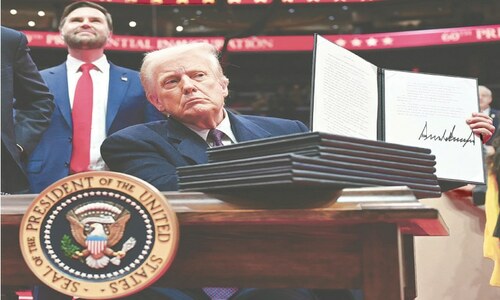











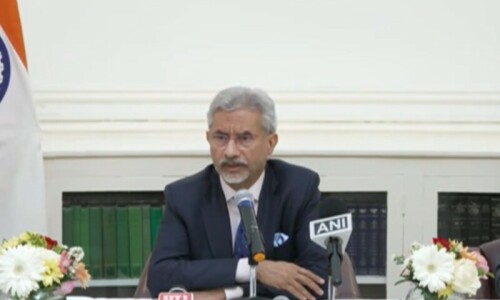

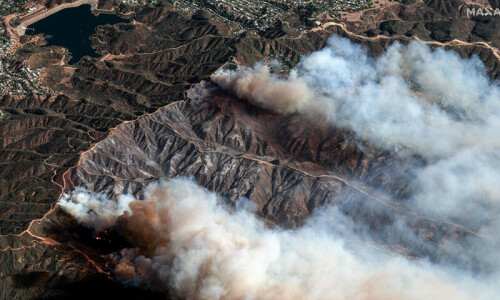















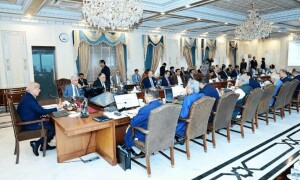

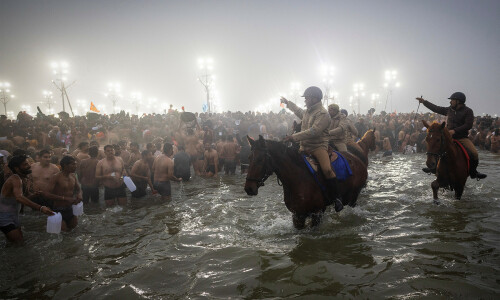











Dear visitor, the comments section is undergoing an overhaul and will return soon.